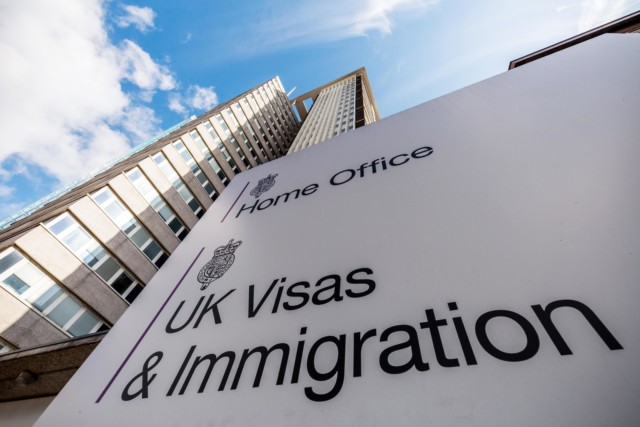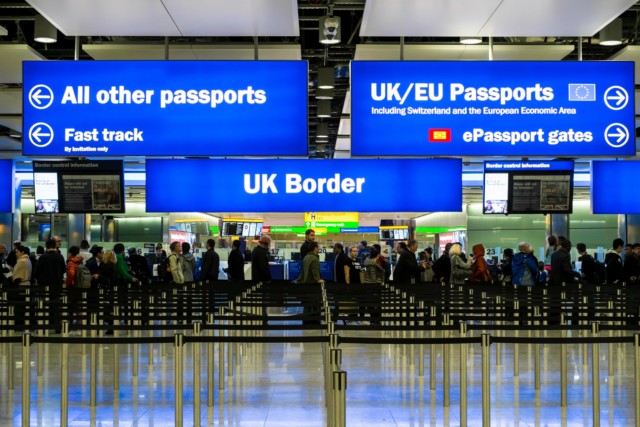IMMIGRATION from non-EU countries surged to the highest ever recorded since records began almost half a century ago, new figures revealed yesterday.
The Office for National Statistics data showed 404,000 people arrived in the UK from outside the EU.
Non-EU migration is the group of migrants the UK has been able to control while still under EU freedom of movement rules, which will end at the end of the year.
Net migration from outside the EU- the difference between the number of people entering and leaving the country – is also at its highest level at 282,000.
Meanwhile, EU net migration fell to 49,000, down from 75,000 recorded a year earlier and after hitting peaks of more than 200,000 in 2015.
The ongoing surge in non-EU migration drove overall net arrivals to 270,000 is the highest level for a calendar year since 2015.
The numbers also revealed that since the 2016 Brexit referendum there has been a 60% fall in EU migration but a 28% increase in migration from outside the EU, despite this being the group of migrants the UK can control.
Meanwhile, EU net migration fell to 49,000, down from 75,000 recorded a year earlier and after hitting peaks of more than 200,000 in 2015.
The ONS report said this was the “result of a decrease in the number of EU migrants arriving in the UK with the intention of staying for 12 months or more for work-related reasons.”
The ONS said the increase in non-EU migration was driven by a surge in Chinese and Indian students arriving in Britain.
The Government said its plans for a points-based immigration system coming into force next year will give the UK control over its borders.
Jay Lindop, director of the Centre for International Migration at the ONS, said in the year to December “non-EU migration was at the highest level we have seen, driven by a rise in students from China and India, while the number of people arriving from EU countries for work has steadily fallen”.
International travel to and from the UK had dropped in recent months after the coronavirus pandemic had a “significant impact”, she added.
Robert McNeil from Oxford University’s Migration Observatory predicted immigration would fall significantly following the coronavirus pandemic and the figures were likely to reflect the last days of “normality”.
He said: “It’s too early to quantify how the pandemic will affect migration to the UK, although so far it’s clear that the consequences already reach right across the immigration system—from workers’ inability to travel to take up work and employers’ difficulty bringing seasonal workers to British fields, to sharp reductions in the number of people detained and deported.
“Even once we emerge from the immediate health crisis, economic and social disruption in the migration system is likely to continue.
“Will UK employers still want to recruit workers from overseas?
“Will international students still be applying for and taking up places at British universities a time of unprecedented disruption and uncertainty? “Migration flows to and from the UK may effectively have to start from scratch once the crisis is over.”










